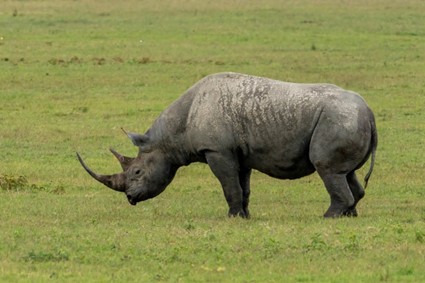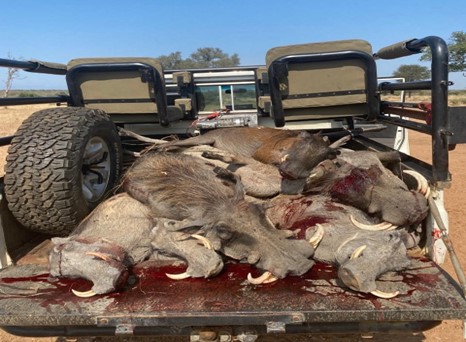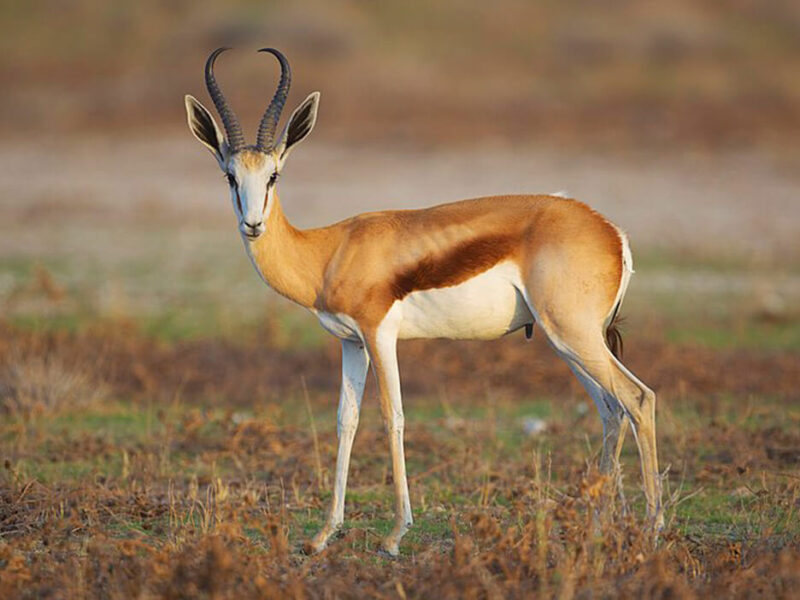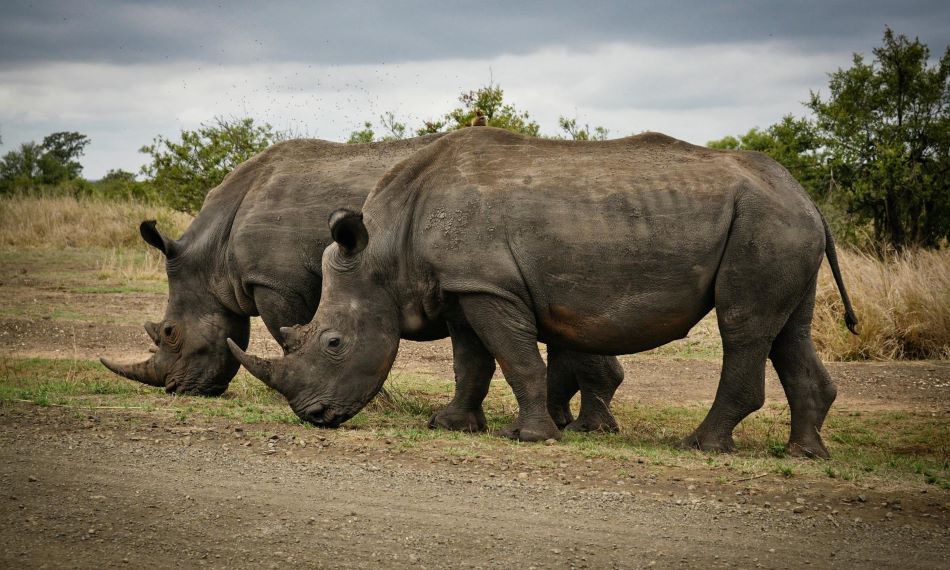Hunting in South Africa is a mega-industry with multiple figures involved in various activities, from the admin to the adventure. One of the biggest role-players is the game hunting outfitter, the humble hero who will be by your side throughout the organizing and eventual running of your South African hunts.
However, the scope of South African outfitters extends beyond the immediate game hunting industry with reaches into community work, scientific study, and environmental conservancy. Beneath the surface, hunting outfitters in South Africa have more of an impact than most realize and do more than most will ever see.
[DYNAMIC-BLOGTABLEOFCONTENT]
Key Takeaways
- South African outfitters are some of the most important and recognizable contributing parties to hunting in South Africa.
- Hunting taxes and fees are one of the main sources of funding when it comes to wildlife conservation and sustainability programs.
- South African hunts are an indirect supporter of other industries in South Africa’s economy.
- Maintaining the human-animal relationship is one of the ways South African outfitters benefit the country and industry.
- There is an outfitter for every hunt and skill level.
- Privately owned ranches account for three times more land than what is owned by the state.
Hunting Outfitters in South Africa – Who They are & What They do
By definition, a hunting outfitter offers the hunt, arranges the logistics, and conducts the game hunting activities of wild animals and is paid in return for their services. These are the people with the knowledge of an animal’s habitat, behavior, and hunting methods; they are the ones who provide the resources required from the hunting land to the accommodation, and even the equipment, if need be. South African outfitters are the ones on the ground, organizing and carrying out the activities necessary to ensure the best possible success of the safari. They either guide themselves or provide guides, assist with permits and licenses, and even take care of the food supply and transport arrangements if necessary.
In the chain of role-players involved when hunting in South Africa, the outfitter is the foot soldier.

Benefits of Hunting in South Africa, the Spinoffs and the Influence of Outfitters in South Africa
Many times, people and publications will focus on the “downsides” and perceived negatives of hunting in South Africa. But truthfully, game hunting plays a big positive role in the trophy hunting industry and other related areas. South African outfitters carry an immense responsibility towards the industry and its practices, as well as businesses relative to or affected by the hunting industry. The hunting industry can have a far-reaching effect many wouldn’t know about and even fewer would understand.
Where the Money goes: Funding Conservation and other efforts
South African hunts, while some of the most economical on the African continent, carry unavoidable fees. Hunting licenses (general and specialized), permits, access costs, and taxes generate a portion that is funneled back into the wildlife industry, going towards conservancy efforts, anti-poaching measures, habitat sustainability, and even funds efforts in security and training initiatives. And when you consider that South Africa’s hunting industry brings in on average over R1 billion a year, that’s a decent contribution towards keeping the industry alive for the future.
Preserving the Game Hunting Environment: Keeping Habitats Alive
Maintaining land for wild game populations and activities is a very costly endeavor, and solely relying on government or private individuals for funding would be reckless. Proceeds from trophy or game hunting activities are often the biggest source of income that covers the cost of sustaining the natural environment and keeping the area profitable.
When lands such as this start to lose their value and maintenance costs climb, it is often sold off and converted to agricultural land, thus contributing to a loss of natural habitat and negatively impacting animal populations, jobs, and conservation efforts.
Sustaining South African Hunts – Managing Wildlife Numbers and Population Control
The reality of today’s world is that humans and animals are being pushed closer and closer together, forced to share quarters and battle for resources such as space, habitat, and food. Hunting outfitters in South Africa will offer cull hunting opportunities that either target specific members of a herd or a set quota of a particular animal. These hunts reduce the impact and demand of animals on the environment, ensuring a better chance for the remaining population as well as removing troublesome creatures that may be responsible for the loss of agricultural produce, damage to property, or even human attacks.
Arguing Meat vs Trophy Hunting: Handling the “Leftovers”
The hunts traditionally seen offered by outfitters are of the trophy hunting variety. These are the wants of international hunters who seek to add to their trophy wall and experience the next big chase, leaving behind the animal’s meat, often donated to community kitchens or homes. But if trophy hunting focuses on the size of an animal, and meat hunting focuses on the size of the animal; it’s simply the goal that is different.
Local hunters generally take the meat back with them, either to process on their own or after having it prepared on the farm, while as mentioned above, meat left behind or not wanted finds its way into the community to further the efforts of facilities providing feeding and care to the less fortunate.

How do Outfitters keep our South African hunts Industry (and the Dream) Alive?
In some ways, outfitters can be seen as the guardians of South Africa’s game hunting industry. Sometimes they battle government bureaucracy, fighting for quotas and funds; and other times they find themselves fending off poachers and other illegal animal-related activities such as smuggling.
Investment Opportunities and Hunting in South Africa
Private funding and investment are often the most reliable sources of financial support for wildlife and hunting-related endeavors in South Africa. By attracting the overseas market (and treating them well), outfitters ensure a relatively stable flow of income that goes towards benefitting and improving the efforts surrounding conservation and growing the game hunting industry in South Africa.
Side-line Support of Hunting in South Africa: Tourism and other Economic Activities
South Africa is a destination for both hunters and non-hunters alike and in modern times, hunters often bring along their families and other individuals who may not be partaking in the hunting activities. These extra people are the ones who require further (and sometimes better) accommodation, visit attractions, take part in tourist activities, and support local businesses further influencing the tourism and hospitality environments.
In a country such as ours, the game hunting season runs year-round, and the boost provided by “bonus tourism” such as this is a source of relief and a boost for an industry otherwise known to be inconsistent and seasonal. Many of the areas surrounding these private ranches are extremely rural and find themselves being off the beaten track of major or traditional tourist routes; meaning that the by-product support of these South African hunts is often the biggest source of income for those in the area.
A Safeguard Against Illegal and Unethical Hunting Practices
It’s been proven that when countries impose hunting bans or restrict these practices, no one benefits except those operating on the wrong side of the law. When legal and ethical hunting is taken away it opens the door to activities such as poaching and smuggling, further endangering vulnerable species and setting back years of conservation efforts. By removing hunting from a particular area, hunters will choose to go elsewhere, creating a knock-on impact of straining the trophy populations of another region.
Hunting outfitters in South Africa can sometimes play a role in assisting law enforcement in gathering vital information and even apprehending suspects. By keeping to regulations and supporting ethical hunting practices, outfitters keep the industry operating as it should, ensuring South African hunts for generations to come.

Hunting Outfitters in South Africa: The Case of Privately-Owned Wild Ranchland
Private ranches account for around 20 million hectares of land, three times more than what lies in the hands of the state and are home to almost 80% of the South African wild animal headcount. Hunting in South Africa traditionally takes place on privately owned land as these ranches, depending on their conditions, can set their own “bag limits” and operating seasons. These concessions are typically high-fenced and controlled, where animals can move freely within the area and no outside animals or predators can interfere.
These privately owned ranches and farms account for a great impact on the conservation of various species, the most notable being the black and white rhinos. South Africa is one of two African countries offering the opportunity to hunt rhinos; and with the country being home to roughly 90% of the world’s rhino population, it’s pretty clear that these privately owned farms are doing something right, current estimates are around 2,000 black rhinos and over 12,000 white rhino.
As said before, South African hunts on privately owned land are a major source of income and investment in the hunting and conservation industry. Private ranches are generally better run than state-owned areas, meaning potential investors have a positive vision of where their money is going and how it will be used. As of last year, less than 1% of consolidated government expenses went towards conservation and sustainability efforts; and with South Africa committing to the global 30×30 initiative, reliable and well-managed funding is an essential requirement.
Often the argument is made that wildlife and trophy-related hunting is a dangerous industry, contributing to the downfall of animal populations. Over the last seven years, an average of around 30,000 animals have been hunted in South Africa, these hunts being controlled and legal. Compared to the advances made and benefits received in bringing back other species from the brink of extinction or bolstering dangerously low population numbers, privately owned ranches and their activities have done their part of putting back what they take out.
To put these private ranches out of business and end hunting in South Africa would put our animals on the same path as those faced by countries such as Tanzania, Botswana, and Kenya where the canning of a legal and controlled industry made way for the black market to flourish and undo years of hard work and effort. These privately owned lands also provide a refuge and safe environment for other “indirect” species including birds, insects, reptiles, and other species which although not hunted, find themselves enjoying the benefits of protected and private land.
Frequently Asked Questions
What is the difference between a broker and an outfitter in game hunting terms?
The easiest way to explain the difference is that hunting brokers are the middlemen between the hunter and the outfitter. The broker will put the hunter in touch with the outfitter who is best suited to their hunt choice and personal preferences; while the outfitter will be the one who puts boots to the ground and either carries out the actual hunt or oversees the hunting activity. The outfitter is the person who has permission and a license to operate the hunting farm/concession.
Does the work of South African outfitters benefit the environment and wildlife?
The numbers don’t lie, efforts by our outfitters and their activities have incentivized animal conservation and responsible hunting practices. This has brought about investment in and attention to the efforts of those who keep the industry going and ensure its sustainability for the future. By upholding a solid reputation, our outfitters are a good face to put forward when examining contributions to population protection and growth, as well as ethical hunting initiatives.
How many hunting outfitters in South Africa are there?
South Africa has 9 provinces and a multitude of hunting opportunities. As such, there are dozens of South African outfitters (estimated at around 70) across the country that have approval and license to operate in either their home province or in multiple provinces across the thousands of game hunting farms covering the country.
How much land is owned by hunting outfitters in South Africa?
Land ownership by private hunters accounts for around 20 million hectares, excluding +/- 15 million hectares marked for mixed farming of wildlife and livestock.
How do I choose the best outfitter when hunting in South Africa?
The outfitter you choose will depend on your choice of hunt, experience level, and the type of all-round experience you want. Some outfitters specialize in one or two game hunting spheres, either specific to a species or area, while others cover a broad range of game hunting targets. Similarly, some outfitters can supply more luxury resort-like accommodations, and others offer a more rustic cabin or camping style of living. Another factor of outfitter choice is your skill level, beginner hunters and experienced hunters demand different things, and having an outfitter who understands what you want and where you’re coming from goes a long way.

Conclusion
The African continent can be a harsh world for both people and animals, and one quickly realizes that things that can’t pay for themselves are soon found out in the cold. South African outfitters and their hunting offerings could be the biggest incentive for foreign and private investment into our conservation and sustainability work. While the industry often walks a grey area in terms of ethics and morals, the evidence speaks for itself to show how the game hunting industry and conservation come full circle and display a great symbiotic relationship.
Author: A. Baker
